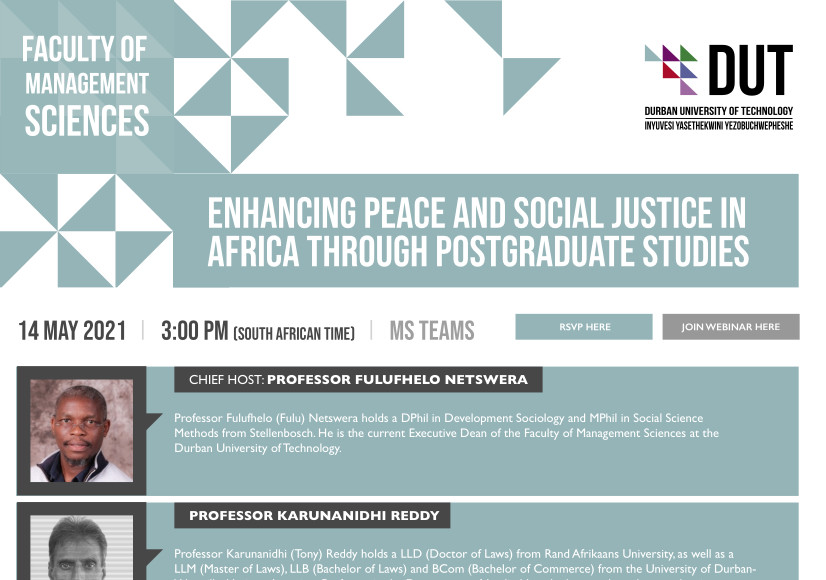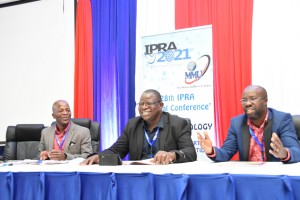Congratulations to the May 2019 Peacebuilding PhD graduates!
l to r: Sylvia Kaye, Tinashe Rukuni, Theodore Mbazumutima, Evernice Chiramba, Ashton Murwira, Geoff Harris


Click the tab to view

DUT Enhancing Peace and Social Justice in Africa
 Chrys Kiyala’s paper was titled Campus violence prevention and student accountability: perspectives from indaba dialogic forum, restorative justice and peace education (Chrys is an Honorary Research Fellow with ICON).
Chrys Kiyala’s paper was titled Campus violence prevention and student accountability: perspectives from indaba dialogic forum, restorative justice and peace education (Chrys is an Honorary Research Fellow with ICON).
May 2019 Peacebuilding PhD graduates
Congratulations to the May 2019 Peacebuilding PhD graduates!
l to r: Sylvia Kaye, Tinashe Rukuni, Theodore Mbazumutima, Evernice Chiramba, Ashton Murwira, Geoff Harris


Incidents of violence at our university, Durban University of Technology, in recent days have cost the life of one student and brought injury to other members of the campus community. We at the International Centre of Nonviolence are deeply affected by this. In addition, we wish to play a direct role in changing relationships at the university that are based on mistrust and hostility. We have thus communicated to student leaders and management our willingness to be involved in processes that create a situation in which conflicts can be resolved through discussion, without harm to any party.
We understand that our universities are not immune to violence; they are part of a violent society and have a responsibility not to reproduce that violence within their institutions. Disrupting these cycles of violence is in our view a core task of the university and is not peripheral to the processes of teaching and learning. We at ICON take up our responsibility of addressing this through our teaching, supervision, research and community engagement, both generally and in response to these specific incidents.
Crispin Hemson, Director
On behalf of the staff of ICON
8th February 2019
The ICON School Engagement Project links schools and university
ICON has launched a major project that advances peace while linking schools and Durban University of Technology.
Please click here to read more…
ICON School Engagement Project Activities, including tutoring , social entrepreneurship and peace clubs:
![]()
In response to requests from members of the Lindelani community, ICON is assisting in developing a Peace Forest. Lindelani has a long history of intense violence, in particular during the years before the transition to democracy. At one stage, a stream surrounded by trees was the dividing line between warring communities. Members of the local community, led by Sibusiso Xaba, have proposed that the area now been made into a Peace Forest; a place that offers local people peace and that also symbolises and celebrates peace.![]()
In 2018, this will be a project of the Durban Leadership Programme, which operates from the International Centre of Nonviolence in collaboration with staff of DUT and the African Centre for Constructive Resolution of Disputes (ACCORD). A group of students will work on the project, undertaking tasks like assisting in the removal of refuse from the stream, removing alien vegetation, developing signage and setting up a web presence for the project.
![]()
In addition, the project will also work at Pigeon Valley nature reserve, in Glenwood on the Durban Berea. This is a well-established and systematically managed municipal nature reserve. However, some of the issues, like the threat of crime, pollution and invasive plants, also affect this park. It could also be developed in innovative ways to foster ways of achieving greater peace.
![]()
© Durban University of Technology. All rights reserved.